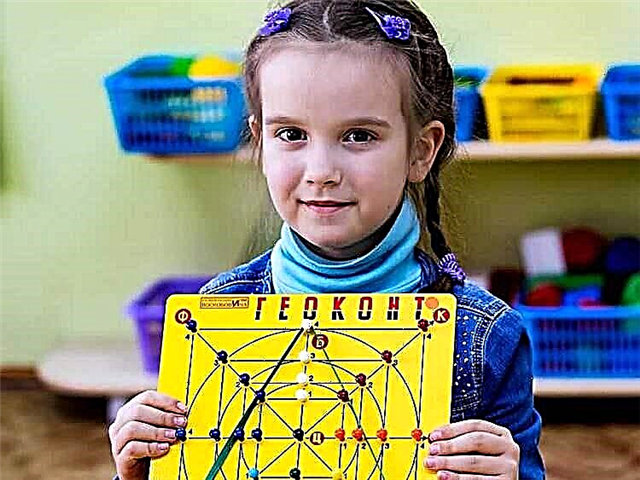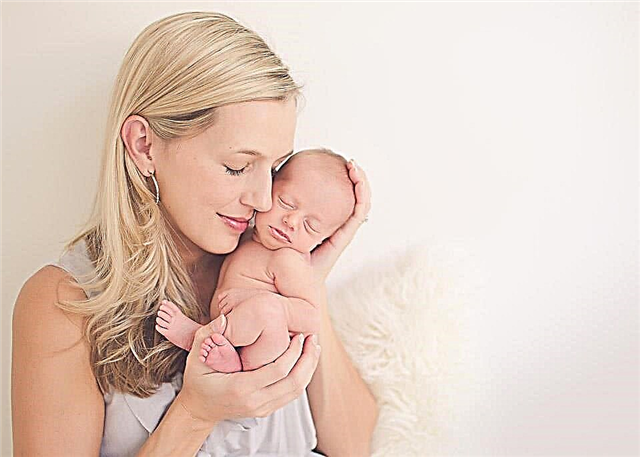Is late pregnancy really dangerous, as doctors say? Is it true that later children are happier and more talented, as psychologists say? We will understand the myths and facts about late childbirth in this article.

In Soviet times, a young mother over 25 years old was called "old-born," which, of course, was offensive to a woman. Now public opinion has changed, now even after 35 years it is not at all shameful to plan a child. Future mothers and progressive doctors are actively adopting Western experience, because in the USA and Europe motherhood in adulthood is a common occurrence. True, in our country there are still many myths and prejudices. Are they all really groundless, or are some of them true?
- It's more difficult to get pregnant after 30 years than at 20. By and large, this is true: with age, the number of ovulations decreases, and eggs are not released in every cycle. There is only one "but" - the period of fertility is purely individual: there are women in whom menopause occurs at 40 years old, but others can become pregnant even at 50.
- The older the woman, the more difficult the pregnancy is. It is not a fact that at 40 years of age the expectant mother will feel worse than at 20. All pregnancies are individual, in each case there may be pitfalls. There is only one thing for sure: with age, more and more ailments and chronic diseases appear, and they will certainly manifest themselves during the bearing of a child. Most often, women who become pregnant in adulthood complain of varicose veins, hemorrhoids, hypertension and other problems with the cardiovascular system, endocrine pathologies, metabolic disorders, diseases of the spine and joints.
- Late pregnancy and childbirth rejuvenate a woman. Yes, they really do rejuvenate, but only psychologically. The newly-made mother feels a surge of strength, a surge of positive emotions, she has many important things to do, as well as an awareness of why and for whom she now lives. After all, with a child, a person seems to return to his childhood - to his once beloved books, toys, creative pursuits. All this improves mood, fills life with joy. But the physical condition after pregnancy and childbirth improves only in isolated cases. Some mothers note that their skin has begun to look better, allergies or even asthma have gone, hormonal balance has returned to normal. However, most often the birth of a child does not affect physical health in any way or, on the contrary, wears out the body to a certain extent.
- Childbirth in adulthood is complicated. In addition to diseases that manifest themselves during pregnancy, a woman may face new problems after the birth of the baby. As the skin and muscles become less elastic, tears are possible during childbirth. Due to age-related changes in bones, pain appears in the spine, because after the birth of a baby, there is a sharp shift in the center of gravity of the body. Often, against the background of late pregnancy and childbirth, hormonal system disorders also occur.
- With late pregnancy, the risk of developing diseases in the fetus increases. Unfortunately, this is a scientifically proven fact. Scientists confirm that 40-year-old women do have children with genetic diseases more often than 25-year-olds. Still, the statistics are encouraging: only 3% of babies who were given birth by mothers over 40 years old have Down syndrome. Various pathologies can also be provoked by intrauterine hypoxia, if the expectant mother has impaired blood circulation and insufficient intake of nutrients. Therefore, all pregnant women need to adhere to a healthy lifestyle and be observed by a gynecologist on time.
- Motherhood is closer to 40 years - conscious. According to psychologists, a modern woman becomes ready to become a mother only from the age of 32, not earlier. There is logic in this: if a woman makes a career, stands firmly on her feet, begins to feel morally, financially secure and makes a conscious decision to give birth, it is highly likely that she will show wisdom and patience in raising a child. However, there are exceptions: mothers of mature age may be tormented by fears related to the health and safety of the baby, and some of them, prone to depression, even perceive the birth of a baby as a sign of their old age.
- After late childbirth, it is difficult to return to their former forms. This is also more a prejudice than a truth. As we age, it really becomes more difficult to tighten the sagging skin on the belly and chest. But you can always lose weight - there would be a desire. The assertion that hormones are to blame for postpartum obesity is simply an excuse for those mothers who do not want to make efforts and limit themselves in something. If weight gain is not caused by a serious pathology, then proper nutrition, fitness and a healthy lifestyle will help return prenatal forms and even become even slimmer - we lose weight after childbirth.
- Late children are happier and more talented. This statement, though controversial, is still not an absolute myth. Mature moms have the opportunity to spend more time with their children than 20-year-olds. It is easier for them to retire and focus only on the child, they no longer need noisy parties, they do not lose heart because they have to stay at home while their friends continue to live an active life. As a result, the little one gets more mother's love, care, affection, they often walk with him in the fresh air, play educational games, read, communicate. What else does a baby need to grow up happy and content with life?
[sc name = ”ads”]
In general, it can be argued that with the current level of development of medicine and society, pregnancy in adulthood is quite normal. It is only important to approach her with all responsibility: to be examined by a doctor in advance, to normalize nutrition and sleep, to monitor your health. During pregnancy, it is necessary to regularly visit a gynecologist, take all tests, do an ultrasound scan and, of course, continue to adhere to a healthy lifestyle.
- Why late pregnancy is dangerous
- 5 dangers of late pregnancy
Pregnancy after forty years: what to fear
Pregnancy after 40 years
The topic is being discussed by the gynecologist Kamil Rafaelevich Bakhtiyarov and the cardiologist Maria Vyacheslavovna Dekalina. They talk about the course of pregnancy at this age:



